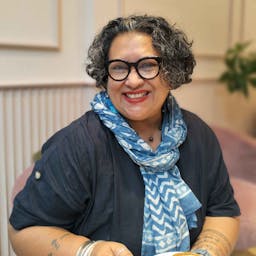Shifting the Power Coalition Climate Connections: Connecting Pacific Young Women to their National Met Office
Nov 24, 2020
Story


Diverse young women leaders, including rural young women and young women with disabilities in Apia, Nadi, Nukualofa, Port Moresby and Port Vila met with officials from their National Meteorological Services today getting insights on climate services and climate products available to progress collective goals of safe and secure communities, ensuring the economic and social well-being of women:
“We are walking away with a lot of information – what to access and how to use it” says Mereani Vula of the Suva YWCA. She was one of 60 diverse young women from rural communities and young women-led and national disability networks who visited their National Meteorological office to see how National Meteorological Services (NMS) work and better understand the key weather and climate services and products produced.
“We are providing young women with crucial information so that they can make informed choices from disaster preparedness to improve young women’s livelihoods programs” says Vanessa Heleta of the Talitha Project in Tonga.
The visits were a first step in ensuring the young women are better informed about climate change science being produced in their own country and develop relationships with the NMS staff. Participants also discussed how they could combine the use of traditional and indigenous knowledge with climate science to advocate for development and security priorities that address the impacts of climate change on their communities including food and water, health and economic security.
Equipped with the information young women can influence decision making processes where local and national climate adaptation plans are being finalised and adopted. This can also mean young women are also able to access resources on projects they identify.
The Shifting the Power Coalition project, supported by the DFAT funded Australia Pacific Climate Partnership (APCP), is developing a network of young women leaders to influence national and regional climate change policy and programmes says Vanessa Heleta: “This project is mobilizing women’s leadership and solutions in response to the health and climate change crisis”
The training and regional consultation is organized into the following streams:
- Training on climate knowledge and climate services to assist participants identify opportunities to influence climate change and DRR decision making
- Develop a regional feminist advocacy framework to support a young women-led regional campaign on climate change and DRR nexus
- Identifying the ways the project can support young women’s leadership and capacity development to implement national activities producing climate stories to share young women’s key messages and advocate for best practices.
- Communications Stream that will result in the production of a series of local video clips which will contribute to a project video
And as the young women found in Fiji, the Climate Service Division is not only producing and distributing weather updates and climate information via new technology such as its new mobile app, but is also delving into historical climate change data is able to show the major temperature, rainfall and other climatic changes experienced in the past 50 years or more.




